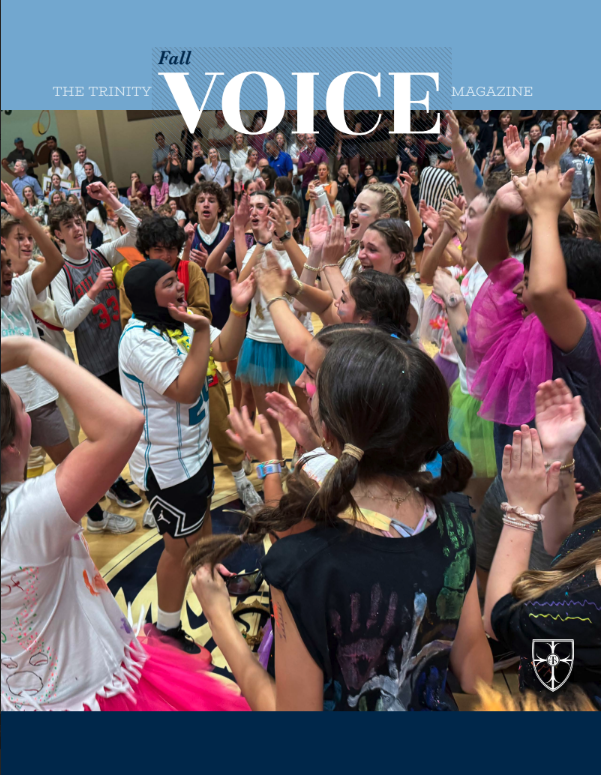Freedom Fete Explores Lessons from Charlotte's Past
“I always have hope.”
Dorothy Counts-Scoggins, one of the first Black students to integrate Charlotte schools, shared her experiences and perspectives alongside Mecklenburg County Commissioner Arthur Griffin and author Greg Jarrell in a conversation Thursday at Trinity’s annual Freedom Fete. The panel discussion was moderated by Ayeola Elias, Trinity's Director of Diversity, Equity, and Belonging.
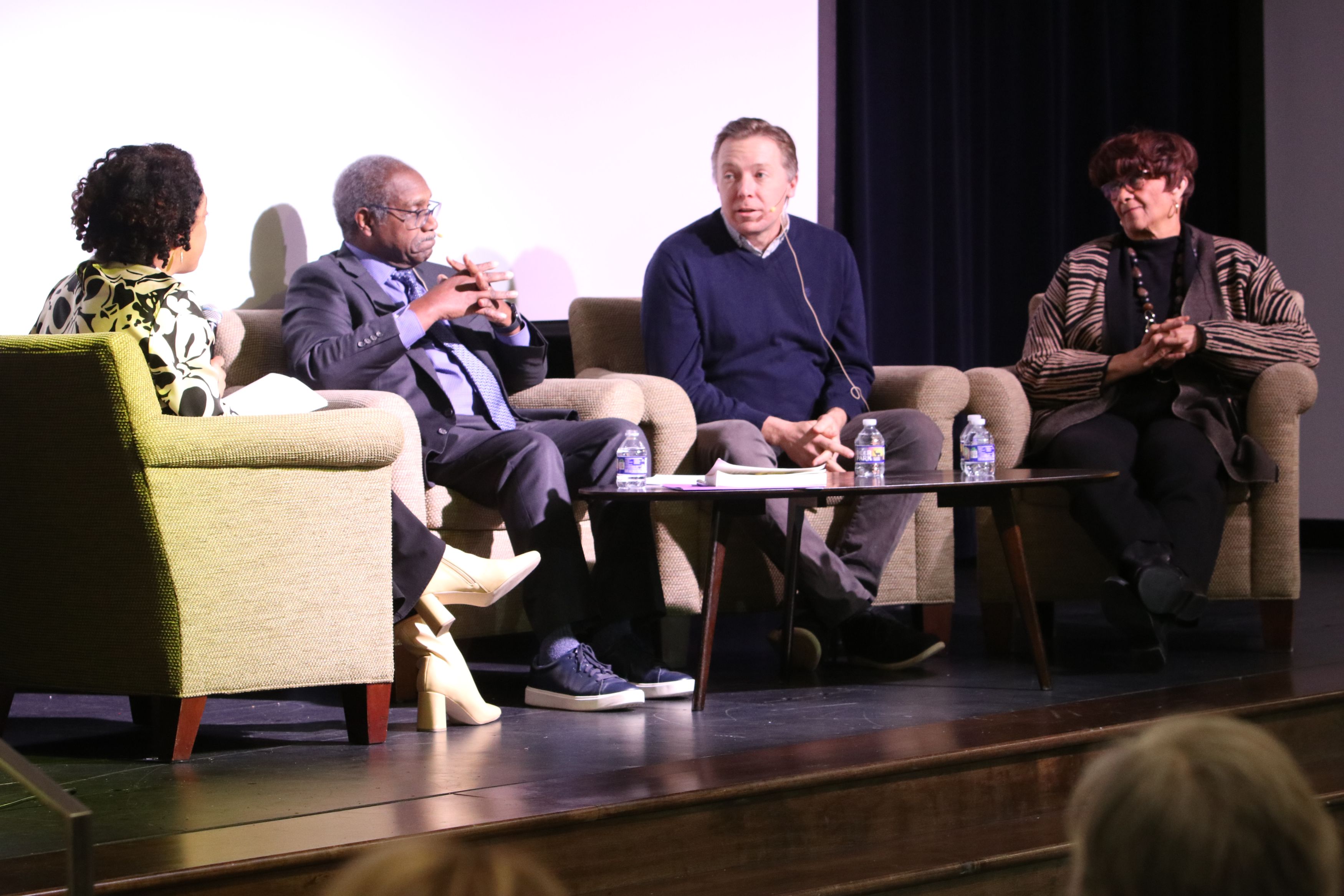
Trinity staculty, parents, and guests listened to a history of Charlotte’s decades-long transition, and the impact those changes have had on individuals and communities.
“We are all in this together,” said Griffin, “but you’re going to have to put forth a personal commitment and personal effort to make Charlotte work” for everyone.
Jarrell, whose book “Our Trespasses” chronicles the urban renewal movement of the 20th Century and the destruction of communities such as Griffin’s native First Ward, encouraged the audience to cultivate friendships and experiences beyond their normal circles.
“You can shop for your groceries in different neighborhoods,” Jarrell said. “If we don't want to live in a segregated city, then we can make some choices to desegregate our lives,” he said.
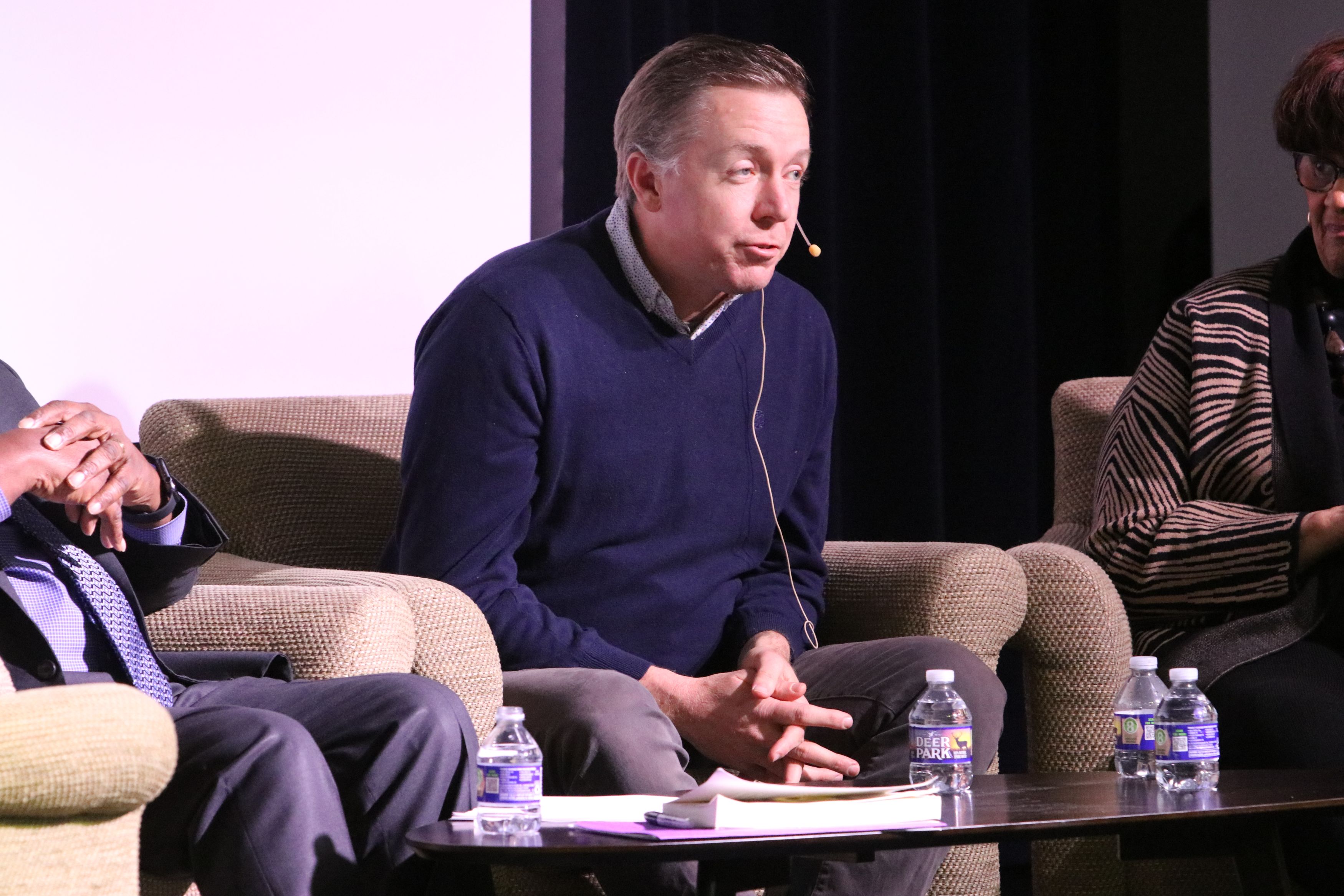
The point of this education, as Jarrell called it, is to become knowledgeable enough to advocate on behalf of those who have been affected by Charlotte’s growth and change.
At a government level, Griffin said policy changes would be needed to protect neighborhoods from further erosion at the hands of growth.
“The intentionality of policy makers like me (is) to make sure that there are opportunities for our neighborhoods to stay intact in a diverse way,” he said.
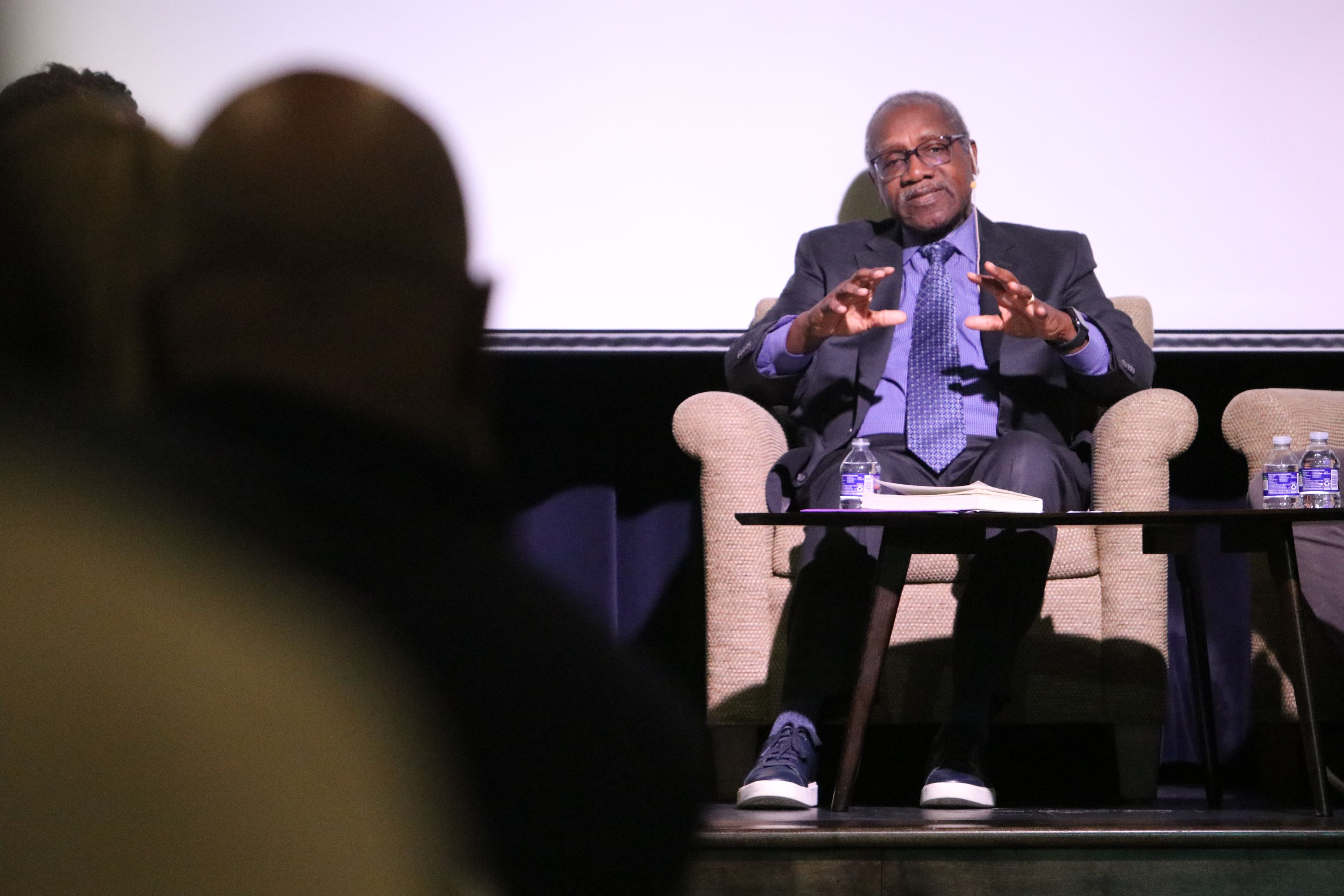
Beyond individual actions, Counts-Scoggins said entire neighborhoods need “to learn to work together.” During the conversation, she shared her work as a mentor to public school students. “It's our responsibility to be able to teach our children their history,” she said.
Her dedication to young people was forged as a 15-year-old student who was jeered and spat on as she and others integrated the all-white Harding High School. After leaving Harding to escape the violent reaction from her classmates and the school community, “one of the things that I (vowed to) do is to ensure that what happened to me would never happen to another child.”
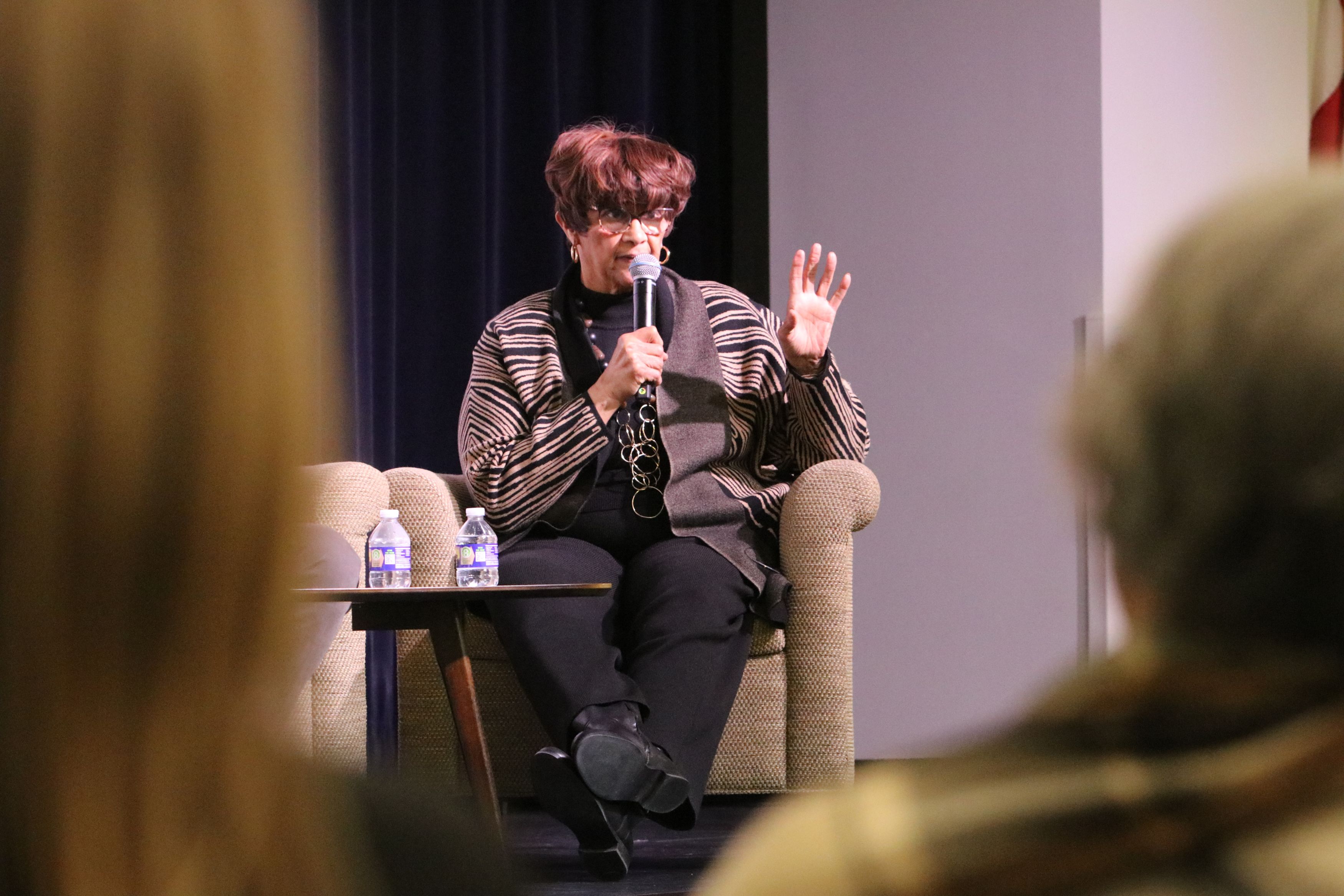
In response to an audience question about the country’s current climate of questioning continued diversity initiatives, Griffin said “we are going to keep moving, whether it's above ground or underground, to make sure that our story is told and that we're committed to a better world.”
Counts-Scoggins encouraged the audience to remain hopeful: “We’ve gone through worse struggles, and we can get through this.”

